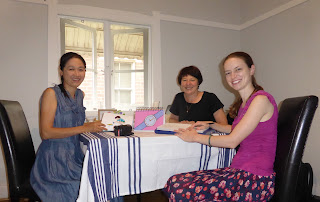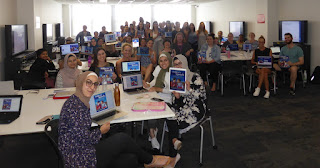McGill, N. & McLeod, S. (2019, in press March). Aspirations for a website to support families’ active waiting for speech-language pathology. International Journal of Speech-Language Pathology.
It forms part of Nicole McGill's PhD and describes research undertaken as part of NSW Health Translational Research Grants Scheme grant "Waiting for Speech Pathology: Advice versus Device" awarded to Emily Davis, Sharynne McLeod, Katrina Rohr, Angela Roberts, Nicole McGill, and Katherine Miller. Congratulations!
Here is the abstract:
Purpose: Children sometimes wait 12 months or longer to access speech-language pathology services. Information on websites may support families’ active waiting for speech-language pathology; however, there are few user-friendly, evidence-based websites specifically designed for children and families for this purpose. The current study aimed to: (1) ascertain appropriate website content, format, features, and functions; (2) evaluate the quality of existing speech and language sites; and (3) obtain feedback on a prototype website.
Method: A 3-stage explanatory sequential mixed methods design was employed. Stage 1 involved 119 participants completing an online questionnaire recommending website content, format, features, and functions. Stage 2 involved evaluating the quality of 25 online sites about children’s speech and language. Stage 3 involved focus groups with 16 participants to explore aspirations and feedback on a website to support active waiting.
Result: Participants wanted information about strategies to stimulate children’s speech and language development, typical development, and services to access while waiting; simple web architecture, and high readability. High scoring sites contained evidence-based information from trustworthy sources. Strategies from the theory of preparative waiting arose in the focus groups (Giske & Gjengedal, 2007).
Conclusion: High-quality sites about children’s speech and language included easily identifiable, trustworthy sources of information. The theory of preparative waiting may be a viable framework informing waiting for speech-language pathology for children with speech and language difficulties.



























